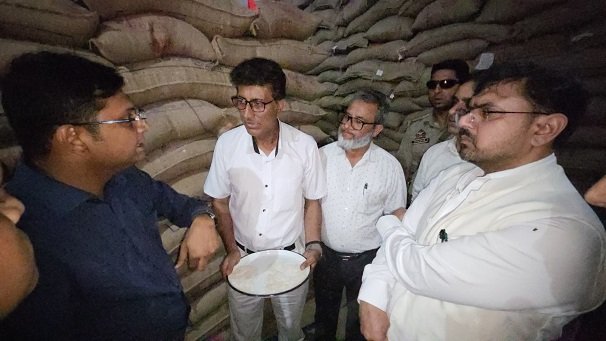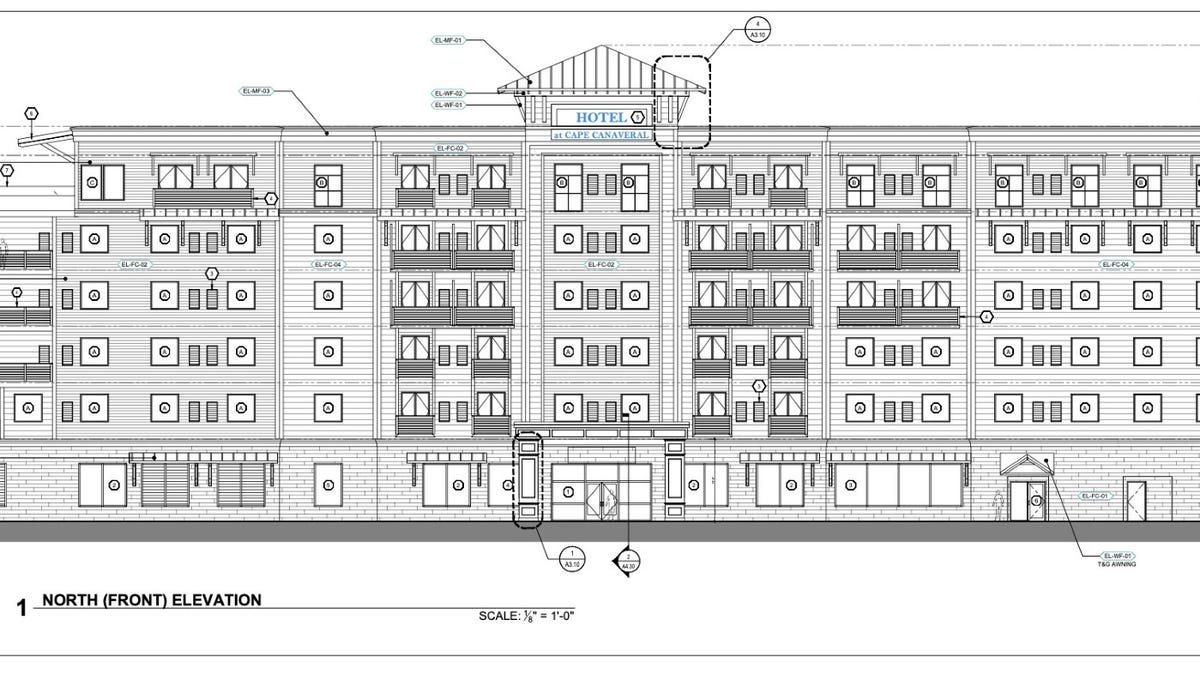Hotels & Accommodations
Tornos News | BCD Travel Survey: What Business Travelers Look for in Hotels

BCD Travel surveyed 1,035 business travelers worldwide, capturing their accommodation preferences, booking and payment habits, and the challenges they face during their business trips.
Accommodations: Comfort, Location, and Employer Policies
Most business travelers choose mid-range (3*) or upper-class (4*) hotels, with location being the most important factor (77%). Employer policies (56%) and cost (53%) also play an important role. Occasional apartment dwellers prefer apartments for longer trips, as they offer more space and the ability to prepare meals and laundry.
Search, book, and pay
75% use their company’s online booking tool (OBT) to search for hotels, while 33% turn to hotel websites or apps. For booking, 84% again choose OBT, 20% directly through the hotel, and only 10% by phone. Three out of four pay with a corporate credit card, while virtual cards are rarely used.
75% of travelers say that their company sets a price cap for hotels, 10% say there are no limits, and 18% do not know.
Habits and preferences
Personal experience strongly influences choice: 77% prefer hotel chains with consistent service standards, while 73% stay in the same hotel on repeat visits to the same destination.
The most frequently used amenities are Wi-Fi and breakfast. Restaurants, parking, fitness centers, and flexible check-in/check-out are also popular. Travelers also value wellness amenities, such as bottled water, pools, spas, and healthy dining options.
Earning loyalty points is a strong motivator, especially in North America, where 99% are members of relevant programs. Overall, 80% participate in at least one program and 2/3 choose hotels that partner with them. 75% say they save points from business stays.
Problems and security
70% say they are satisfied with their company’s hotel policy and preferred suppliers. However, complaints are recorded about slow Wi-Fi, not including breakfast in the price, outdated rooms, and uncomfortable beds.
Security remains a concern: 30% said they did not feel safe due to the location, while 70% double-lock their room door.
Sustainability: Low Priority
50% rarely or never consider environmental factors when booking. 40% don’t consider sustainability at all, while only 20% look for features like eco-certification, reduced plastic, low carbon, water efficiency or limited cleaning.
BCD Travel says sustainability should be built into the hotel selection process and goals should be clearly communicated to travelers.
Strategy for the Future
As Teri Miller, BCD’s Executive Vice President, notes, a successful hotel program is “dynamic” and adapts to the needs of the market and travelers. With the hotel contract negotiation period underway, the company is providing tools and advice to better leverage programs and improve deals for 2026.
Hotels & Accommodations
Minister Satish Sharma inspects Hotels , Establishments

SRINAGAR, Aug 8: In continuation of government’s intensified campaign to ensure food safety and quality standards across Jammu and Kashmir, Minister for Food, Civil Supplies & Consumer Affairs, Satish Sharma, today led a comprehensive inspection drive in various parts of Srinagar. The inspection covered Food Corporation of India (FCI) godowns, fair price shops, hotels, restaurants and street food vendors.
The Minister was accompanied by Director, FCS&CA, Dr. Owais Ahmad, senior officers from the Food Corporation of India, Food Safety Department and Legal Metrology Department. Satish Sharma began his visit at the FCI godowns, where he reviewed the storage infrastructure, stock handling procedures and sanitation standards. He stressed that every stage of grain handling—from unloading to storage to distribution—must strictly adhere to prescribed quality control norms.
There is absolutely no room for negligence. The safety and quality of these supplies is non-negotiable,” he said. He directed the officials to conduct regular internal audits, ensure pest control and proper ventilation and maintain accurate stock records to prevent wastage and pilferage. The Minister then visited multiple fair price shops, where he interacted with shopkeepers and beneficiaries under the Public Distribution System (PDS). He checked stock registers, verified availability of ration and inspected the quality of grains and other commodities. He emphasised the need for complete transparency in distribution and warned that any irregularities in quantity, quality, or pricing will invite immediate suspension of licenses and legal action. Given recent reports and seizures of adulterated and unsafe meat in Kashmir, Satish Sharma carried out surprise inspections of hotels, restaurants and street vendors. These checks focused on meat sourcing, storage conditions, hygiene practices in kitchens and the freshness of raw materials being used. Concerned by the threat such practices pose to public health, the Minister issued a strong warning.“Those involved in the storage, usage, or trade of adulterated meat are putting lives at risk. This is not a minor violation—it is a criminal act. I want to make it absolutely clear: the government will take strict and immediate punitive action against all offenders, including sealing of premises, cancellation of licenses and prosecution under relevant food safety and public health laws.” He also condemned the practice by some violators of dumping spoiled meat in abandoned places to evade penalties, calling it an unacceptable and dangerous tactic that will not shield them from legal consequences.
Satish Sharma directed the enforcement squads to maintain heightened vigilance, especially in sensitive areas, and to carry out round-the-clock surprise inspections of high-risk establishments. He instructed that supply chain tracking be used to identify and dismantle entire networks engaged in the adulterated meat trade, from suppliers to retailers. The Minister urged the citizens to remain alert and report any suspicious or unhygienic food practices to the authorities.
“This is a fight we will pursue relentlessly. Protecting public health is our top priority, but it requires community participation. Together, we can ensure that no unsafe or adulterated food reaches our people’s plates,” he said. Reiterating the Government’s zero-tolerance policy towards food adulteration, Satish Sharma assured that the enforcement campaign will continue in a sustained and intensified manner across all districts of the Union Territory “We are committed to eradicate unsafe food products from our markets and ensuring that every citizen of Jammu and Kashmir has access to safe, quality food,” the Minister emphasized.
Hotels & Accommodations
Cape Canaveral to get six-story Margaritaville-branded hotel

Construction of a Margaritaville-branded hotel is about to begin in Cape Canaveral, aiming to attract customers from Port Canaveral’s steadily growing cruise market.
The 150-room, six-story Compass by Margaritaville Hotel will be located at 8955 Columbia Road, which is one of the closest parcels to Port Canaveral.
Corey Runte, a vice president at Certified General Contractors, which will be coordinating the $32 million project, said construction could begin as early as October.
“I think it’s a unique brand,” Runte said, noting its connection to the late singer/songwriter Jimmy Buffett, whose hit song “Margaritaville” helped trigger the creation of a Margaritaville hospitality empire of hotels, restaurants and other venues.
Coincidentally, the Cape Canaveral hotel will be just off State Road A1A, which last year was officially designated by the state as the Jimmy Buffett Memorial Highway.
Runte said hotel will have indoor and outdoor dining, plus a resort-style swimming pool.
Cape Canaveral hotel development continues
This will be the third hotel that Certified General Contractors will be building in Cape Canaveral recently, joining the 150-room Hyatt Place Cape Canaveral that opened earlier this year and the soon-to-open, 156-room Hilton Garden Inn Cape Canaveral.
Brevard County Tourist Development Council Chair Rob Feltner said the construction of hotels the Cape Canaveral market is an indication of the optimism about the continued growth of the cruise business at Port Canaveral, the world’s second-busiest cruise port.
Many Port Canaveral passengers stay in hotels along the Space Coast for one or more days before or after their cruises.
There are several other Compass by Margaritaville hotels in Florida, including ones in Anna Maria Sound, Flagler Beach and Naples.
Runte said the brand typically approves projects in cities near the water and in a tourist-heavy community.
“They’re very selective with where they’ll approve a location,” Runte said.
An Alachua-based management group will be the Cape Canaveral hotel’s owner/developer, under the Compass by Margaritaville franchise.
Another Margaritaville hotel was proposed in Melbourne
Principals in the Cape Canaveral hotel are not connected with a proposed Compass by Margaritaville on a 4.6-acre riverfront site just south of Cherry Street on U.S. 1 in Melbourne.
The Melbourne proposed is more elaborate than the Cape Canaveral project, with plans for the tropical-themed Melbourne Margaritaville that include a seven-story hotel facing the Indian River Lagoon; a two-story restaurant building with 400 seats; a 221-slip marina; a 14,000-square-foot lawn with stage for concerts and events; a four-level parking garage; and a public boardwalk.
However, construction on that project has not proceeded.
The Melbourne project’s developer did not respond to phone, text and email messages seeking an update on the status of the development.
Melbourne city officials say they have not received any recent updates on that project.
Dave Berman is business editor at FLORIDA TODAY. Contact Berman at dberman@floridatoday.com, on X at @bydaveberman and on Facebook at www.facebook.com/dave.berman.54
Hotels & Accommodations
UK Tourism Impacted as Protests Erupt Outside Immigrant Hotels Amid Housing Controversy

Published on
August 9, 2025 |
On August 8 and 9, 2025, protests erupted outside multiple hotels across the UK that house asylum seekers, stirring controversy around the government’s immigration policies. The demonstrations, which took place in over 20 locations, raised significant concerns about the broader implications of housing asylum seekers in hotels. These protests, centered around what many have called “immigrant hotels,” are not only a challenge to the country’s immigration policies but also threaten the tourism industry, with potential impacts on local economies that rely on tourism.
The protests are particularly noteworthy as they coincide with peak tourist season, with demonstrators voicing their dissatisfaction about the government’s approach to housing migrants in temporary accommodations. As asylum seekers occupy hotels that are usually booked by travelers, local tourism providers and businesses face growing tension as protests disrupt tourism hotspots and challenge the use of hotels as temporary housing.
The Strain on Local Tourism and Communities
The increasing number of protests in tourist-heavy regions such as Dover, Birmingham, and London has drawn attention to the negative effects on local tourism. These areas, which are popular for both domestic and international visitors, are experiencing disruptions. Local businesses, including hotels, restaurants, and shops, have reported a decline in foot traffic and bookings due to the protests. As tensions rise, international tourists might reconsider their travel plans, wary of potential unrest and the heightened political atmosphere surrounding immigration.
In areas like Dover, where protests have frequently occurred, local tourism is struggling. With many hotels housing asylum seekers, there’s growing concern among small businesses that rely on seasonal tourists. Protestors argue that the influx of asylum seekers has placed a burden on the local economy, which is exacerbated by the political rhetoric surrounding migration. For these businesses, the uncertainty of the situation is affecting their ability to plan for a stable future, especially as the peak summer season approaches.
Government’s Response and Its Impact on Tourism
The UK Home Office has responded to the protests by reducing the number of hotels being used to house asylum seekers. From over 400 hotels in the summer of 2023, this number has now dropped to fewer than 210. This reduction is part of the government’s effort to manage the immigration crisis while attempting to limit its impact on tourism.
Further plans to phase out the use of hotels for housing migrants by 2029 aim to reduce costs and stabilize the accommodation situation. However, the impact on the tourism sector is already being felt, particularly in regions where the presence of asylum seekers is higher. Local tourism businesses are calling for clearer solutions that do not disrupt their operations, as the unpredictability of protest activity makes long-term planning challenging.
How Protests Could Shape the Future of UK Tourism
As protests continue across the country, many are questioning the long-term consequences for the UK’s tourism sector. The growing public debate surrounding the housing of asylum seekers and the use of hotels is likely to affect the UK’s international image, potentially deterring tourists who are concerned about safety and stability. For countries that depend on tourism as a significant part of their economy, this could have far-reaching consequences, especially in cities that rely on foreign visitors.
The UK government’s plan to end the use of hotels for asylum seekers by 2029 may offer some relief, but there is concern about how the transition will unfold. Will the country be able to accommodate asylum seekers in other ways without disrupting local economies and tourism? The road ahead remains uncertain, as communities, businesses, and tourism stakeholders continue to voice their concerns.
Navigating the Challenges: Can UK Tourism Recover?
As the UK government moves forward with its plan to address the housing of asylum seekers, the question remains: How will this situation impact the future of UK tourism? Tourism, one of the country’s most valuable industries, depends on the perception of safety, stability, and accessibility. The growing protests and political unrest may have long-lasting effects on the sector, especially in areas where tourism is a primary driver of the economy.
However, the government’s eventual plans to reduce its reliance on hotels for housing migrants may offer hope for the recovery of the tourism industry. As businesses and local communities continue to navigate these challenges, a more stable and sustainable solution for housing asylum seekers could pave the way for the restoration of tourism flows.
-

 Brand Stories3 weeks ago
Brand Stories3 weeks agoBloom Hotels: A Modern Vision of Hospitality Redefining Travel
-

 Brand Stories2 weeks ago
Brand Stories2 weeks agoCheQin.ai sets a new standard for hotel booking with its AI capabilities: empowering travellers to bargain, choose the best, and book with clarity.
-

 Destinations & Things To Do3 weeks ago
Destinations & Things To Do3 weeks agoUntouched Destinations: Stunning Hidden Gems You Must Visit
-

 Destinations & Things To Do2 weeks ago
Destinations & Things To Do2 weeks agoThis Hidden Beach in India Glows at Night-But Only in One Secret Season
-

 AI in Travel3 weeks ago
AI in Travel3 weeks agoAI Travel Revolution: Must-Have Guide to the Best Experience
-

 Brand Stories1 month ago
Brand Stories1 month agoVoice AI Startup ElevenLabs Plans to Add Hubs Around the World
-

 Brand Stories4 weeks ago
Brand Stories4 weeks agoHow Elon Musk’s rogue Grok chatbot became a cautionary AI tale
-

 Brand Stories2 weeks ago
Brand Stories2 weeks agoContactless Hospitality: Why Remote Management Technology Is Key to Seamless Guest Experiences
-

 Asia Travel Pulse1 month ago
Asia Travel Pulse1 month agoLooking For Adventure In Asia? Here Are 7 Epic Destinations You Need To Experience At Least Once – Zee News
-

 AI in Travel1 month ago
AI in Travel1 month ago‘Will AI take my job?’ A trip to a Beijing fortune-telling bar to see what lies ahead | China

You must be logged in to post a comment Login